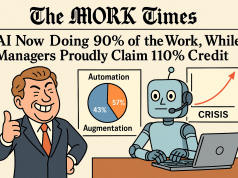In today’s digital era, the job market has undergone a transformative shift, with remote opportunities becoming more prevalent than ever before. For many, the allure of a digital nomad lifestyle or the flexibility of a remote work arrangement is a siren call, promising a better work-life balance and the elimination of grueling commutes. However, this evolution of the workplace also brings with it a new set of challenges and an intensified level of competition for job seekers. This article will guide you through the intricacies of the modern job search landscape, offering strategic advice for those aspiring to secure a remote position in the crowded digital job market.
First, let’s tackle the importance of optimizing your digital presence. In a realm where your online persona often serves as the first impression to potential employers, it’s crucial to curate a professional and cohesive image across platforms. This means fine-tuning your LinkedIn profile with relevant keywords, maintaining an industry-relevant blog or portfolio, and ensuring that your digital footprint supports the narrative of your professional capabilities and aspirations.
Leveraging virtual networking is another vital component. As traditional, in-person networking events have shifted online, the ability to connect and engage with industry peers and potential employers through platforms like LinkedIn, Twitter, and niche online communities has become indispensable. Building a robust network can lead to insider information on job openings and referrals, which often carry significant weight in the hiring process.
Another aspect to consider is the role of SEO in personal branding. Understanding how to optimize your online content so that it stands out to both search engines and hiring managers can give you a competitive edge. Integrating industry-specific keywords into your online profiles and content can enhance your visibility and signal to recruiters that you’re well-versed in your field.
Mastering virtual interviews is also a key skill. As the interview process for remote jobs typically occurs online, it is essential to be comfortable and proficient with video conferencing tools and to present yourself in a professional manner in a virtual setting. This includes being aware of your environment, ensuring proper lighting and sound quality, and practicing your responses to common remote job interview questions.
Lastly, as companies continue to adapt their recruitment processes to accommodate a global pool of candidates, it’s important for job seekers to understand what these changes mean for them. More organizations are utilizing asynchronous interview methods, AI-driven applicant tracking systems, and other technological solutions to screen and select candidates. Understanding how these systems work and how to navigate them can be the difference between a successful application and one that gets lost in the digital abyss.
By taking a strategic approach to your job search, optimizing your digital presence, leveraging networking opportunities, understanding the nuances of SEO and personal branding, and mastering virtual interviews, you can increase your chances of landing a remote role that satisfies your professional goals and supports your lifestyle aspirations. The remote job market may be vast and competitive, but with the right strategies, you can emerge as a standout candidate ready to thrive in a digital-first work environment.
Embrace these insights and embark on your journey to a successful remote career with confidence and clarity. The Work Times is here to support your endeavors, equipping you with the knowledge and tools you need to excel in a world where the lines between work, worker, and workplace are continuously being redrawn.




























